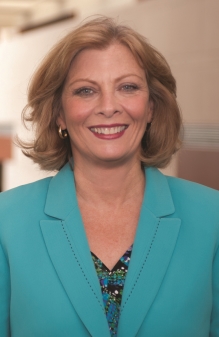
District: Mayor
Age: 57
Occupation: Pharmacist, owner of MedproRx
City of Residence: Raleigh
Incumbent: Yes, 2 years, plus two terms on City Council
Website
What do you see the role of the mayor as in Raleigh city government and how would you be the most effective mayor?
Well the role of mayor in Raleigh city government is to really pull all those pieces together. I think the mayor is the most recognizable person in city government. Our Council of 8, we all vote. A lot of people don’t understand that we have a council-manager form of government. It’s not like some states or cities where they have what’s called a strong mayor where the mayor really is like the manager. All the department heads report to the mayor. Here that’s different. We make policy as a Council and direct the manager to implement that policy. But I think the mayor really does set the tone for the council, how we work, how we move forward. It’s
important to have a recognizable but approachable face to the city. I think it’s important for citizens to know that their mayor is involved in a lot of issues and accessible to them.
Many issues taken up by the state legislature have a direct impact on Raleigh. How can Councilors work better with the state legislature on those issues?
This year I was the chair of the metro mayors coalition, which is the 28 largest cities in the state. And we as a coalition really did try to look at the different bills, although some of them came very quickly and we almost didn’t have time to react to a lot of them, but there really were that affected cities and we did repeatedly say we would love to have a seat at the table and work in partnership with you. You know what I would like to see, maybe in the future a stronger, a way to unite the wake delegation and those municipalities in Wake. It’s a big county, we have 12 municipalities and we have a pretty large delegation. I think more communication and more back and forth in the past operate on a municipal level and on a state level and on a county level, there’s so much advantage to working together on things.
Raleigh continues to grow at a good pace, which affects everything from our water quantity to our infrastructure. How do you feel Raleigh can become more proactive about managing that projected growth?
Plan, plan, plan. We have to have a plan. I mean, look at where Raleigh is now. We didn’t get here by accident. We are continually ranked No. 1 because we continue to do a really good job planning. We are going to see more unprecedented growth and I think one of our biggest issues is going to be transportation. It’s not just Raleigh, it’s Raleigh and Wake County. It’s also the Triangle. Not everyone who lives in Raleigh works in Raleigh. A lot of people live in Raleigh and work in the Park or might work at UNC-Chapel Hill. I think we really need to think and plan more as a region going forward.
What do you think are the best and worst decisions made by the Council these last two years?
Well the past few years, clearly our worst one ever was the garbage disposal, but the good thing about that was we learned a lot from it, we went back and changed our minds. I think that was one of the first things I voted on when I first got on Council, but it really was a big lesson in doing a lot of homework. I know I as a Councilor learned a lot from that. It’s interesting because sometimes, the good decisions are the big ones, the ones that really move us forward. I’m thrilled to see the growth of arts and culture of this city that’s a huge economic driver, it’s a big piece of who we are.
It’s one of the main reasons why people are moving here. I love the fact that I got the ordinance passed that you couldn’t chain your dog. I had to take my dog to the emergency vet and they had a big sign about it and It was kind of like, “I did that.” It is a combination of those big encompassing pieces, but also the decisions that might seem small but really impact somebody’s life. Fixing somebody’s stormwater problem. I think one of the best things we did was tighten up the restrictions on construction sites when it came to stormwater runoff. It wasn’t just the amount of water, but the quality of water. The silt that was coming off was really impacting neighbors and neighborhoods.
Raleigh voters will decide whether to approve bonds for a transportation plan. Do you support the bond? If so, what would be your priorities?
This is really important. This is very confusing. We have a transportation bond this fall on the ballot. That transportation bond, it’s repairing roads, it’s finishing roads, it’s widening roads, it looks a lot at construction. It finishes some pieces that haven’t quite been finished yet. That is very different than the transit referendum that is still waiting for the County Commissioners to OK. I think we’re going to work very hard during this period to make people understand this bond is really about roads and maintaining the infrastructure that we have and trying to help with some of the congestion problems we have.